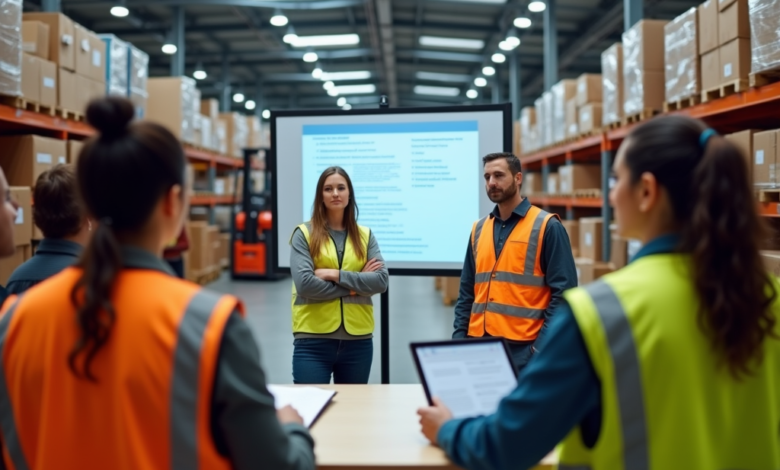Building a Future-Ready Workforce: The Importance of Continuous Learning in Logistics

In the logistics sector, the rapid advancement of technology and evolving market demands necessitate a workforce that is both adaptable and proficient in current methodologies. Continuous learning emerges as a pivotal strategy to ensure that professionals remain competent and ready to tackle emerging challenges.
Adapting to Technological Advancements
The logistics industry is witnessing significant technological transformations, including the adoption of automation, artificial intelligence, and advanced data analytics. To effectively harness these innovations, it’s essential for professionals to engage in ongoing education. This commitment to learning enables them to stay abreast of the latest tools and methodologies, ensuring that operations remain efficient and competitive.
For example, understanding the functionalities of modern warehouse management systems is crucial. Participating in warehouse management system training equips individuals with the skills to optimise inventory control, streamline processes, and enhance overall operational efficiency.
Enhancing Operational Efficiency
Continuous learning plays a vital role in refining operational processes within logistics. By staying updated with industry best practices and emerging trends, professionals can identify areas of improvement and implement strategies that lead to cost reductions and improved service delivery.
Moreover, a culture that promotes ongoing education encourages employees to develop problem-solving skills and innovative thinking. This proactive approach not only addresses current operational challenges but also anticipates future obstacles, fostering a resilient and agile workforce.
Fostering Employee Engagement and Retention
Investing in the continuous development of employees signals an organisation’s commitment to their growth, leading to increased job satisfaction and loyalty. When team members perceive that their employer is dedicated to their professional advancement, they are more likely to remain engaged and motivated.
Additionally, providing opportunities for skill enhancement allows employees to take on new roles and responsibilities, reducing turnover rates and the associated costs of recruiting and training new staff. This strategy not only retains talent but also builds a versatile team capable of adapting to various roles as organisational needs evolve.
Implementing Effective Learning Strategies
To cultivate a future-ready workforce, organisations should consider the following approaches:
- Personalised Learning Paths: Recognise that each employee has unique strengths and areas for improvement. Tailoring learning programmes to individual needs ensures that the training is relevant and effective.
- Leveraging Technology: Utilise e-learning platforms and virtual simulations to provide flexible and accessible training solutions. This approach accommodates diverse learning styles and schedules.
- Encouraging Knowledge Sharing: Promote a culture where employees are encouraged to share insights and best practices. Mentorship programmes and collaborative workshops can facilitate this exchange of knowledge.
- Regularly Assessing Competencies: Implement assessments to evaluate the effectiveness of training programmes and identify further development opportunities. Continuous feedback loops help in refining learning initiatives.
By embracing continuous learning, organisations in the logistics sector can build a workforce that is not only skilled but also adaptable to the ever-changing industry landscape. This commitment to ongoing education ensures sustained operational excellence and positions the organisation for long-term success.



